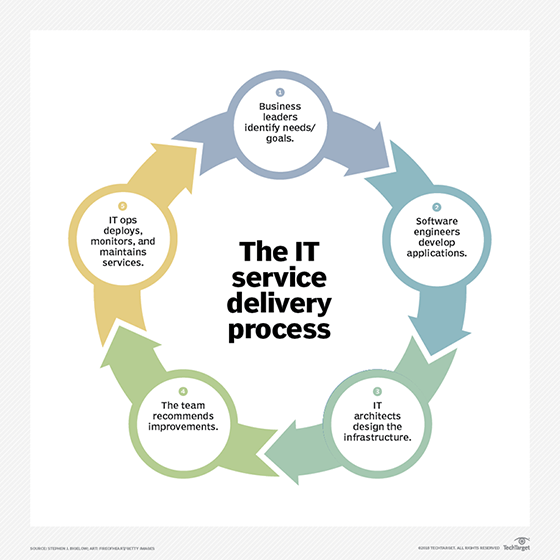The Crucial Role of a Service Delivery Manager in a Managed Service Provider (MSP)
16 August, 2023
Business

Service Delivery Manager - MSPs
In today’s fast-paced business landscape, organisations are constantly striving to stay ahead of the competition, drive innovation, and maintain operational excellence. One critical component that supports these objectives is efficient and effective IT management. Managed Service Providers (MSPs) have emerged as valuable partners for businesses seeking to streamline their IT operations, enhance productivity, and focus on their core competencies. At the heart of every successful MSP is a high-performing Service Delivery Manager (SDM) team, a key team who orchestrate the entire service delivery process. In this blog, we will delve into the importance of the Service Delivery Manager role within an MSP and highlight the significant benefits that companies using MSPs receive over traditional in-house solutions.
The Role of a Service Delivery Manager in an MSP
The Service Delivery Manager is the linchpin that connects clients with the various technical and operational facets of an MSP. This role involves overseeing the end-to-end delivery of services, ensuring seamless communication between the client and the MSP, and maintaining a high level of customer satisfaction. The SDM wears multiple hats, acting as a project manager, a technical expert, and a customer advocate all at once. Let’s explore some of the core responsibilities of a Service Delivery Manager:
Client Relationship Management
The SDM is the primary point of contact for clients, responsible for understanding their unique needs, preferences, and challenges. By building strong relationships, the SDM can tailor solutions to meet these specific requirements, fostering a deeper level of engagement.
Service Design and Planning
Collaborating with the technical team, the SDM plays a pivotal role in designing customised solutions for clients. They are responsible for translating client needs into actionable service plans that align with the client’s business goals.
Project Management
The SDM coordinates all aspects of service delivery, from initial planning to execution and monitoring. This includes managing resources, timelines, and budgets, and ensuring that projects are delivered on time and within scope.
Technical Expertise
While not always required to be deeply technical themselves, SDMs possess a solid understanding of the technical aspects of the services being delivered. This expertise enables them to bridge the gap between technical teams and clients, ensuring effective communication.
Issue Resolution
In the event of any issues or disruptions, the SDM takes charge of troubleshooting and problem resolution. Their swift actions minimise downtime and maintain the integrity of the client’s operations.
Continuous Improvement
SDMs regularly assess the effectiveness of services, gather feedback from clients, and work with internal teams to identify areas for improvement. This proactive approach enhances service quality and customer satisfaction over time.
Benefits of Using an MSP with a Service Delivery Manager
Companies that partner with an MSP and leverage the expertise of a Service Delivery Manager stand to gain numerous advantages compared to traditional in-house IT solutions. Let’s explore some of these key benefits
“One of the best things about using an MSP with an SDM team was their ability to take a consultancy approach to this entire project. In other words, they provided us with much more than just a ‘Desktop as a Service system’ – they have provided us with the expertise, support and tools that we need to offer the best possible service for our clients and employees.” – Business Leader
Cost Efficiency
Running an in-house IT department involves significant expenses, from hiring and training personnel to maintaining infrastructure. By outsourcing IT services to an MSP, businesses can access a wide range of expertise without the overhead costs.
Access to Specialised Skills
MSPs typically have a diverse team of experts with specialised skills across various domains of IT. This means that clients can tap into a pool of talents ranging from cybersecurity to cloud computing, gaining access to cutting-edge knowledge that might not be available in-house.
Scalability
As businesses grow, their IT needs also evolve. MSPs offer the flexibility to scale services up or down based on demand. Whether a company is expanding rapidly or experiencing a temporary downturn, an MSP can adjust services accordingly.
Focus on Core Competencies
Outsourcing IT functions to an MSP allows organisations to redirect their resources and energy towards their core business objectives. This strategic alignment can lead to increased innovation and faster time-to-market for new products and services.
Reduced Downtime
SDMs play a crucial role in monitoring systems, detecting issues early, and implementing preventive measures. This proactive approach minimises downtime, which is crucial for maintaining operational efficiency and delivering consistent customer experiences.
24/7 Support
MSPs often provide round-the-clock support, ensuring that businesses have access to assistance at any time. This is especially valuable in today’s global and interconnected business landscape where operations don’t stop after regular business hours.
Enhanced Security
Cybersecurity threats continue to evolve, and MSPs are well-equipped to implement robust security measures. With an SDM at the helm, businesses can benefit from the latest security practices and technologies, reducing the risk of data breaches and other security incidents.
Strategic Partnerships
Service Delivery Managers are more than just service providers; they become strategic partners. By understanding the client’s business inside and out, they can offer tailored solutions that align with the client’s long-term goals and vision.
Summary
In an era where technology is a driving force behind business success, the role of a Service Delivery Manager within a Managed Solutions Provider is paramount. This role brings together technical expertise, project management skills, and client-focused communication to ensure that organisations receive top-notch IT services tailored to their needs. The benefits of partnering with an MSP and utilising an SDM are far-reaching, including cost efficiency, access to specialised skills, scalability, enhanced security, and the ability to focus on core competencies. As businesses continue to embrace the advantages of outsourcing IT functions, the role of the Service Delivery Manager will remain essential in delivering value and driving innovation.
If you would like to learn more about SDMs or if you are looking to hire Service Delivery Managers for your business, get in touch with Talented Recruitment Group.


One Response